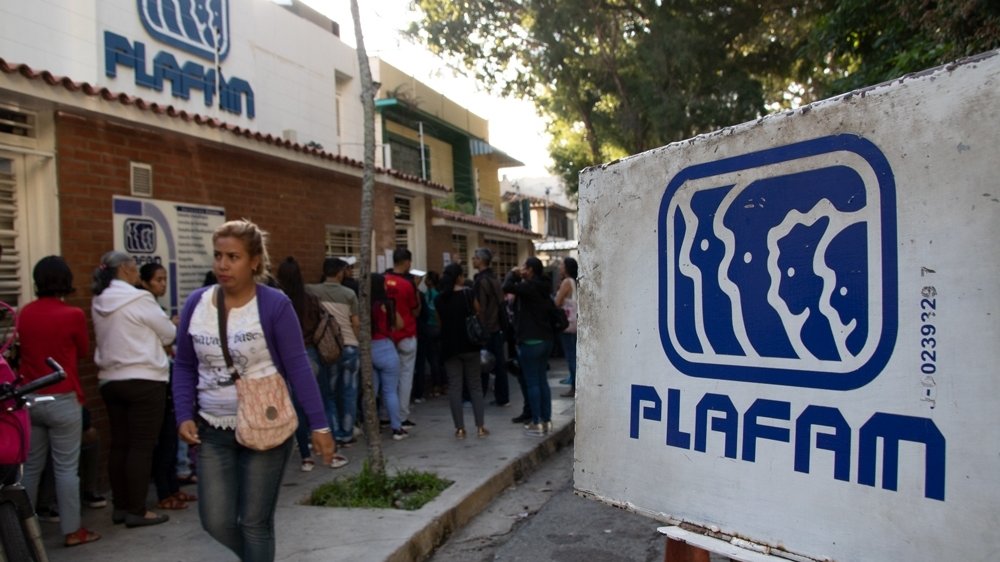Plafam is a lifeline for the countless women, girls, and in-need community members seeking sexual and reproductive health (SRH) services in Venezuela. Plafam, referred to in Spanish as Asociación Civil de Planificación Familiar, is one of the only organizations without regular disruptions to SRH supplies and services for Venezuela’s vulnerable populations.
Driven by the vision to provide continuous, rights-based SRH services for Venezuelans impacted by the protracted humanitarian crisis, Plafam runs and operates five community-based clinics throughout Venezuela and also provides services along the country’s border with Colombia, reaching women and girls on their migration routes. The association, which is an IPPFWHR partner organization, also provides services with five mobile units, 11 partner clinics, and nine community-based service delivery points, many of which are in the most inaccessible, hard-to-reach regions of the country.

Executive Director Belmar Franceschi said that “the partnerships we’ve forged with grassroots organizations, community leaders and community health workers, are vital, as the women and girls organize themselves to receive our health brigades, taking control of their lives and choosing the method they want, getting a chance to a better quality of life.”
SRH services offered include contraceptive care, routine gynecological care, and sexually transmitted infections and diseases testing, among other vital services. Plafam also offers psychosocial care and a harm and risk reduction model against unsafe abortion. In 2020, Plafam delivered an estimated 1.26 million SHR services to women and adolescents.
Once widely available and subsidized by the state, contraceptives are nearly non-existential in state health clinics and, on the rare occasion that people in Venezuela can find contraception in private pharmacies, inflated prices remain a key barrier to access. Plafam is a rare provider of low- or no-cost contraceptives.
Franceschi said, “We know that inequalities, scarcity of services, transportation, food, etc. are multiple; but this is not a barrier for us. We don’t want to stop and will continue providing services, reaching communities.”
With a lack of contraceptive access further exacerbated by pandemic-related lockdowns and unemployment, Plafam’s community members are particularly grateful for continued access during the COVID-19 pandemic.
Lisette Jiménez, a 38-year-old community member, said that, during the early days of the pandemic, “it was even worse because I am an informal street vendor [and] there’s almost no people in the streets. No one is buying from me.” Citing availability and cost barriers, Jiménez expressed relief at being able to locate a long-acting reversible contraceptive at Plafam, saying, “I found the implant and at a good price.”
Also, in response to the significant uptick of gender-based violence (GBV), Plafam incorporated a GBV screening protocol into all clinical consultations, which, consequently, has led to an increase in GBV-related support and services.
“We must continue to be resilient, with strategies that respond to the needs in an agile manner.”
Executive Director Belmar Franceschi
Franceschi remains adamant that educating community members on their SRH rights and Plafam’s ability to provide SRH supplies in an otherwise scarce context will create dignified SRH care. She added, “[Plafam] is here. We have been able to make opportunities of…difficulties, and we have many hopes, including hope that this is going to change. And we must never lose this hope. We must not tire and continue working for women, girls and the people who need us most.”
To learn more about Plafam’s role in responding to the crisis in Venezuela, visit Plafam on their platforms: